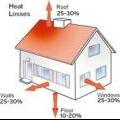
Wood has the best thermal insulation properties of any mainstream construction material.
The North Coast Forests Taskforce is an industry based initiative comprising representatives from Forests NSW, the Australian Forest Products Association, the Timber NSW, the Institute of Foresters of Australia, industry representatives from across the North Coast of NSW and the broader community.
The mission of the Taskforce is to substantially improve community understanding of, support for and confidence in, the environmentally sustainable management of North Coast forests and their timber products.
We are constantly looking for inspiration. For facts and statements that inspire us, surprise us and motivate us. The slide below contains a a collection of facts we have compiled so far. Keep your mouse off the panel - otherwise it won't slide
Watch our 30 second "Make it Wood" Television Ad. It's worth it! Not long enough? Check out the longer version too.